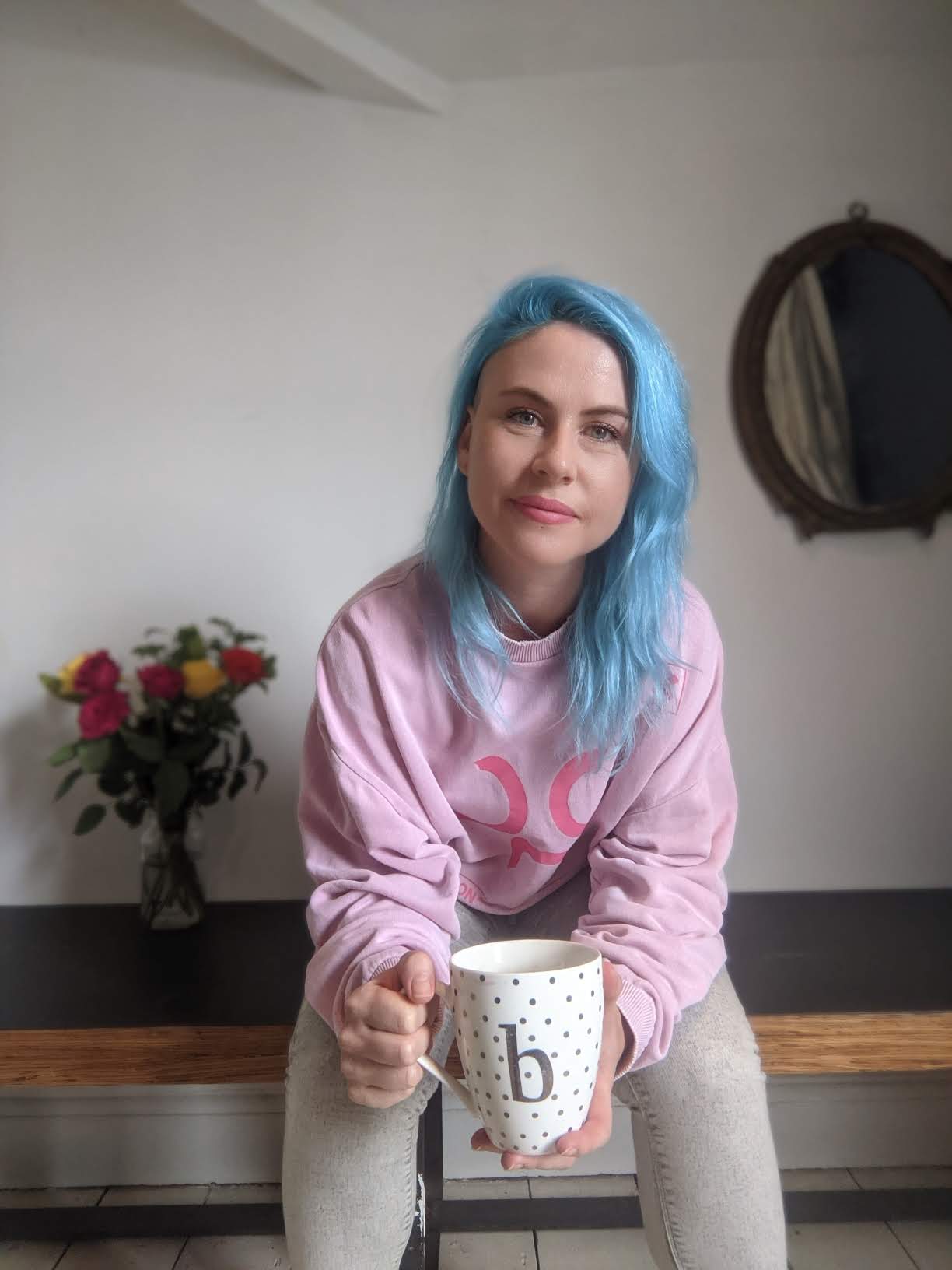45.
The number lingered between us for a moment as I looked at my mum on Zoom. My confusion suddenly cleared the way for shock as I scrambled for some way to respond to this news.
“What, really? You went through menopause at 45?”
Unbaffled, my mum nodded in confirmation as I began to do frantic calculations in my head.
“Wow. So, when did grandma go through it?”
“Oh darling,” my mum frowned, “We never talked about such things.”
To be fair, neither had I before now. Menopause had always felt part of some distant, dusty future where I wore orthopedic shoes and never left the house without a hankie. A time that I didn’t need to bother myself with currently.
Except here I was, in my late 30s, and I’d begun to undergo some changes. Small but notable ones. Mainly a dwindling menstrual cycle that had retracted from its typically robust month-long marathon to more of a 20-day sprint.
I’d initially ignored my shorter cycle, figuring that this was something my body would sort out in time. It was only when I realised it had been over a year that I started to accept that this may be the way things were now. Another ‘new normal’ that I suddenly had to come to terms with amid the pandemic.
Like most people in their 30s, I’d never heard of perimenopause. Menopause, yes, but I thought it was some strange stretch of life, characterised by hot sweats and a generally grumpy demeanour. An impression informed by little more than the occasional depiction in the media.

It turns out that menopause itself is only one day. As the menstrual health expert, Maisie Hill explains in their book Period Power, menopause is the first anniversary since your last period. A signifier that your body has transitioned into a new stage of life.
On the other hand, perimenopause is the long, sweaty, grumpy time that precedes it by up to a decade, with a certain amount of variation. These symptoms are common for many people, but everyone who menstruates experiences a unique blend of fluctuations to deal with. For example, some experience a significantly decreased desire for sex, while others experience bursts of obsessive teenage-level arousal.
Remembering your teens, it does help to view perimenopause as another puberty – a time of upheaval and change as your body prepares for a new life stage. Think swirling hormones, bad skin, mood swings, and suddenly feeling like you’re a completely different person.
A common perimenopause symptom is depression, which I have experienced in the past year. It’s one of the main reasons this transition has been misdiagnosed for many in the past (and often, still today) as strictly a mental health issue.
I was lucky to know what was coming when the more disruptive symptoms started for me. After all, knowledge is power, and I at least was armed with a sense of what was happening to my body, no matter how difficult it has been to navigate some days.
When I started researching my symptoms a few years ago, I was naturally drawn to menopause calculators. Websites that promised to help me predict precisely when I would reach menopause. They peppered me with questions: when did you begin menstruating? Ever had an STI? Have you used any medical contraceptives?
It turns out that these calculators are about as accurate as using a crystal ball. There is no way to predict your age when menopause arrives. However, two factors could potentially give you some indication.
The first factor is if you’ve ever had children. Most people who menstruate go through menopause between the ages of 45-55, with the average person reaching it at 52. (For context, if you think this is old: 52 is JLo’s current age). However, it often (but not always) occurs a few years earlier for those who haven’t had children.
The second factor is the age your mum went through menopause. While we aren’t genetically predisposed to be exactly like our mothers, there seems to be some correlation across generations. So, it helps to know what your mum’s experiences have been. Hence, how I ended up on Zoom, having a conversation that wasn’t exactly what I had expected.
It would be a fair observation to say that my family are big on breeding. I have enough siblings to form a mini-football team, and our nieces and nephews almost outnumber us. So, even though I’ve chosen not to have children, I always figured that anything related to fertility would be one of my strong points. So I assumed that when it came to the menopause party, we would be fashionably late.
Except, as it turns out, this is completely wrong. I was blindsided by the news about my mum going through menopause at the earlier end of the spectrum. Being in my late 30s meant that I could count on one hand the number of years till I might stop menstruating, especially considering I am child-free.
My lack of education about menopause meant that this news made me panic. Was that it? Five more years of fun, flirtatious, sexy me and then game over? Forever? I suddenly saw myself on a countdown till I crossed over to ‘the other side’ with no idea what it looked like.
Thankfully, two years and a ton of research later, I now know that life after menopause is not only ok but looks pretty goddamn delightful to me. I’ve also found that as my body has begun to change, I feel more comfortable in my skin than ever before.
My only wish is that I had known about this all sooner and saved myself a lot of confusion and anguish. There’s no reason for peri/menopause to be a guarded secret, so we should start this conversation earlier. Definitely in our thirties. Maybe even in our twenties, if you consider that one in a hundred people who menstruate reach menopause before turning 40.
The perfect place to start is with your mum. What was it like for her? Does she have any wisdom to share? Maybe you remember her going through it? Maybe like me, you were a naval-gazing teenager who had zero awareness. Either way, I don’t think it’s ever too early to start this conversation because we should all be ready to talk about “such things.”
For more menopause stories, advice and interviews, head to the Menopause Your Way Stories hub. To browse and shop a curated edit of menopause products, visit the Menopause Your Way page on QVC.
The content of the QVC website is for information only. It is not intended as a substitute for professional medical advice, diagnosis or treatment. Always seek the advice of your doctor or other qualified health provider with any questions you may have regarding a medical condition. Never disregard professional medical advice or delay in seeking it because of something you have read on the QVC website.
We understand there’s a lot of information out there on the menopause. You can read through the NICE guidance on menopause management, as well as the NHS overview on the menopause.




